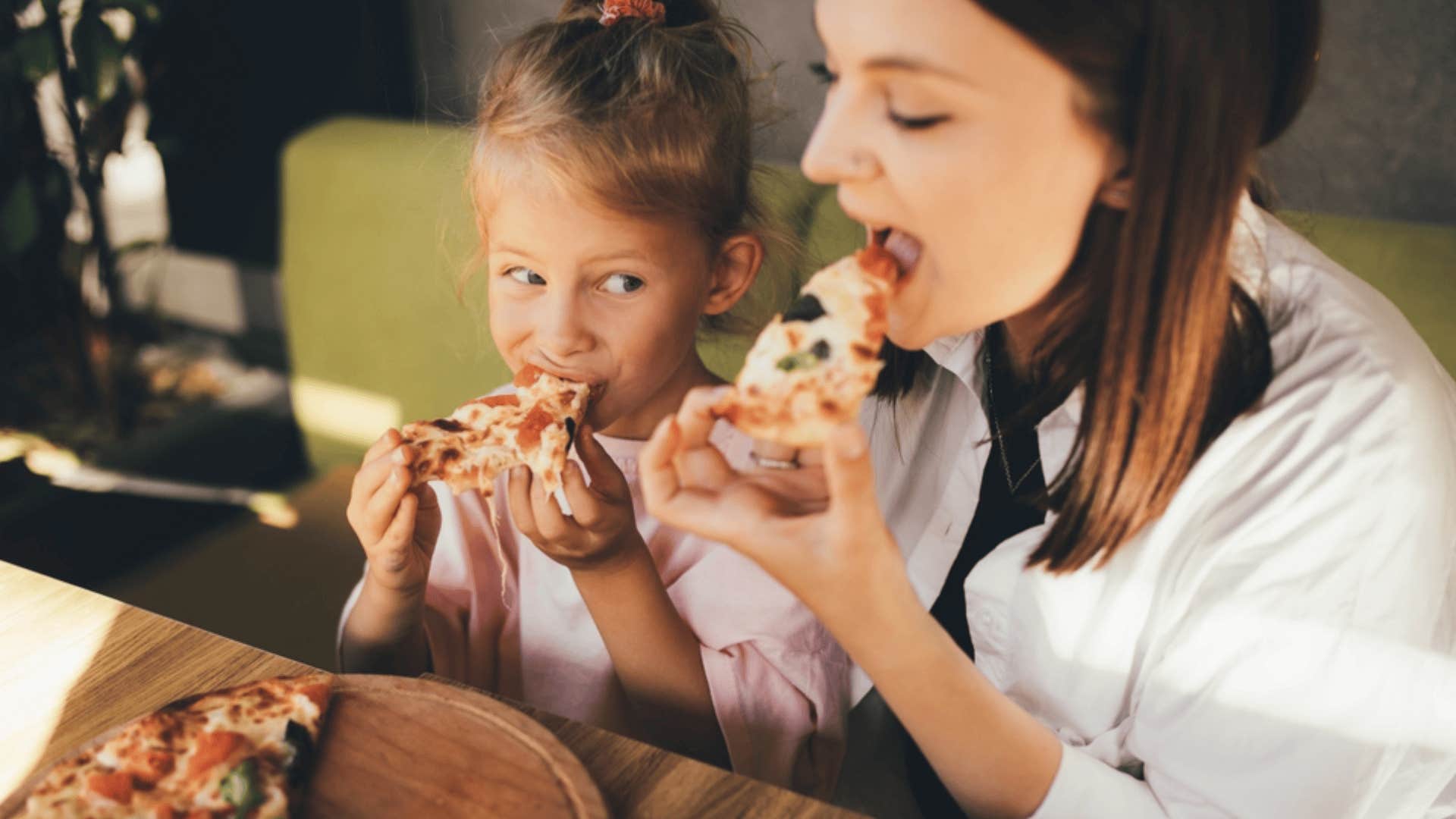10 Signs You Were Raised By A Parent Who Had No Idea What They Were Doing
There is no manual when it comes to parenting, but some parents are especially clueless.
 Media_Photos / Shutterstock
Media_Photos / Shutterstock Unlike some other aspects of life, there is no step-by-step guide to parenting. Every child will be different, and what works for one may not work for another. Many parents go into parenthood assuming that they will learn as they go. While some of them may have a few basic ideas of what it will be like and what their expectations are, many of us were raised by parents simply had no idea what they were doing.
Many parents simply aren’t taught how to handle the tough emotional and developmental milestones their children go through and are left to figure it out themselves. Even though this does not necessarily make them bad parents, it may make for some confused children.
Here are 11 signs you were raised by a parent who had no idea what they were doing
1. Unpredictable discipline
 Yuganov Konstantin | Shutterstock
Yuganov Konstantin | Shutterstock
One minute you were being screamed at that you were being grounded for life. The next you were being rewarded for the same behavior. Parents who had no idea what they were doing often never had a solid plan when it came to discipline. This can create a sense of instability and fear in children, and they often have a difficult time determining what is appropriate behavior and what is not since sometimes they would be punished and other times they would be praised for the same behavior.
As an adult, you may struggle with self-esteem and confidence since you still may not be able to differentiate between right and wrong based on how your parents reacted to your behavior.
2. Meals never made sense
 polinaloves | Shutterstock
polinaloves | Shutterstock
Parents often stressed the importance of protein and veggies, yet there were some days where neither of them even made it to their children's plates. Dinner sometimes consisted of cereal, fast food, or peanut butter and jelly sandwiches.
While every one of us likely had meals that only consisted of junk food and our parents didn’t always have time to prepare home-cooked meals, some of us may not know much about basic nutrition when we become adults who are responsible for feeding ourselves. Sometimes they may think that a jelly doughnut is enough and then go to bed hungry. Other times they may eat as much food as they can in one sitting and wind up with a nasty stomach ache.
Even if nutrition may not be a top priority for busy parents and their kids, eating something is all that matters, they may want to give their kids a few pointers when it comes to healthy eating habits and food balance.
3. They forgot school events
 FamVeld | Shutterstock
FamVeld | Shutterstock
According to a Ladders survey, 38% of parents (mainly those who are working) admitted to missing one of their children’s main events over the past year. This can include school activities like field day, classroom parties and book fairs.
While not every parent will be able to attend every one of their child’s school events due to reasons out of their control, some of them do not even think to look at their child’s school calendar to keep track of when they are. Their children, especially if they are still in elementary school, will then find themselves showing up to school without the proper attire or field day or no money for the book fair.
Parents who have no idea what they are doing are often scattered, and forget to remind themselves and their children of any upcoming school events they need to prepare for.
4. They neglected to enforce self-care routines
 PH888 |Shutterstock
PH888 |Shutterstock
For parents who had no idea what they were doing, self-care and hygiene education was an afterthought, and their kids often had to learn the hard way that it should be prioritized. Some parents may have assumed that as long as their kids were fed and dressed, they were doing their jobs adequately. However, self-care and personal hygiene are just as crucial.
Failing to properly bathe them and teaching them what they can do to keep themselves clean only leads to the spread of germs and infectious diseases. Just like food and clothing, hygiene and self-care are bare necessities children should have, not a fun little add on.
5. Random ‘tough love’ moments
 theshots.co | Shutterstock
theshots.co | Shutterstock
One moment your parents would be overly affectionate and gladly give into your every request. The next moment they turn cold and are emotionally unavailable. They may even randomly take a “tough love” parenting approach, thinking that it will foster resilience in their kids. However, researchers have determined that tough love may backfire miserably.
“One of the misconceptions [about resilience] is often people think it’s like a tough love. You know: ‘Buck up and just do this,’” child psychologist Tovah Klein, said.
According to Klein, children are more likely to be resilient when they have parents who demonstrate consistent love and attention to them, even during vulnerable moments where they are not exactly feeling resilient.
6. They gave vague explanations for everything
 YAKOCHUK VIACHESLAV | Shutterstock
YAKOCHUK VIACHESLAV | Shutterstock
If you were raised by parents who had no idea what they were doing, you are likely familiar with the words, “Because I said so,” followed by no reasonable explanation. Whenever you asked why something was the way it was or why there were certain rules you had to follow, you were met with vagueness, leaving you confused on what was right and wrong.
While some parents hoped that their vagueness would shut their kids up for a while or make them more independent, it can actually be detrimental to their overall development.
A landmark study conducted by researchers Betty Hart and Todd Risley found that children who heard less words, including harsher, more prohibitive speech and less conversational give-and-take, did not reach their full potential in life, intellectually and emotionally. Children are curious, and the only way they will truly learn is from hearing explanations from their parents.
7. They gave horrible life advice
 Prostock-studio | Shutterstock
Prostock-studio | Shutterstock
If your parents had no idea what they were doing, they likely offered you little to no useful life advice that would actually help you. You were often told questionable things like, "You'll understand when you're older," or, "Just fake it till you make it,” instead of anything that would be of use to reach your full potential.
This may be because your parents were essentially winging the whole parenting thing, they applied the same approach to other areas of life and didn't have solid advice to offer.
8. There were no boundaries in your house
 George Rudy | Shutterstock
George Rudy | Shutterstock
Kids who have parents who don’t know what they’re doing were either granted too much freedom or weren’t allowed to do anything on their own. Their parents often struggled to enforce boundaries that would keep them in line and establish expectations.
However, research has consistently proven that children thrive when they have clear and consistent limits. It gives them a sense of security and helps them understand how the world works and how they should behave given the situation.
Jess VanderWier, MA, RP., a seasoned psychotherapist, shared with Nurtured First that parents should think of their children’s boundaries as a sandbox: a safe space where they can play, explore, and learn with your guidance.
9. Unexplained rules or chores
 Yuganov Konstantin | Shutterstock
Yuganov Konstantin | Shutterstock
Parents who had no idea what they were doing often failed to have a structured system for house rules or cleaning, with their children learning through trial and error. They may have lived in filth with little organization since the expectations when it came to cleaning and chores were never explicitly stated.
Dishes may have often piled up in the sink, clothes would be overfilling the hamper, and toys were often scattered without a designated spot for them. This disorganization could leave kids feeling just as confused as their parents feel about parenting.
10. A. 'figure it out yourself’ attitude
 PeopleImages.com - Yuri A | Shutterstock
PeopleImages.com - Yuri A | Shutterstock
When problems arose or if you had questions, your parents’ go-to response was often, “you’ll figure it out," if they didn’t know what they were doing. While some parents may encourage their children to navigate through their own problems as a way to give them a sense of independence, others may use it to deflect the responsibility of having to do things for them they may not know how to do.
In these situations, children might feel unsupported or neglected, not realizing that the parent’s lack of involvement is rooted in their own uncertainty rather than a deliberate effort to foster independence.
Megan Quinn is a staff writer with a bachelor's degree in English and a minor in Creative Writing. She covers news and lifestyle topics that focus on justice in the workplace, personal relationships, parenting debates, and the human experience.

